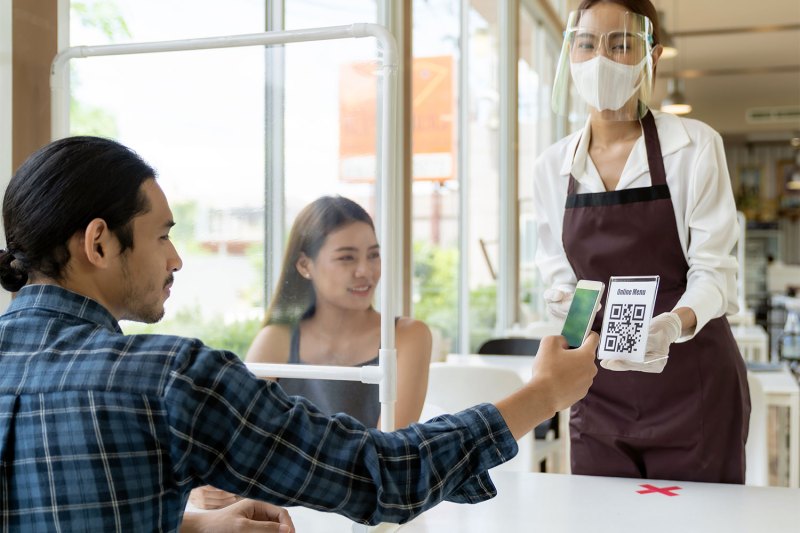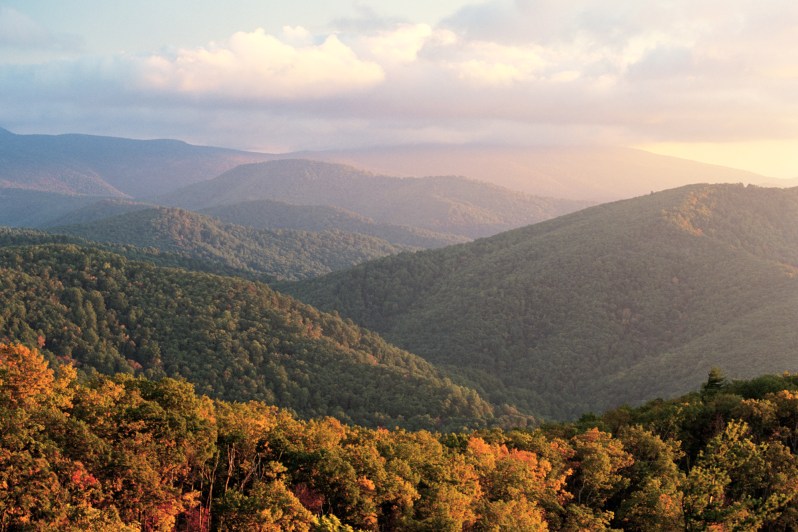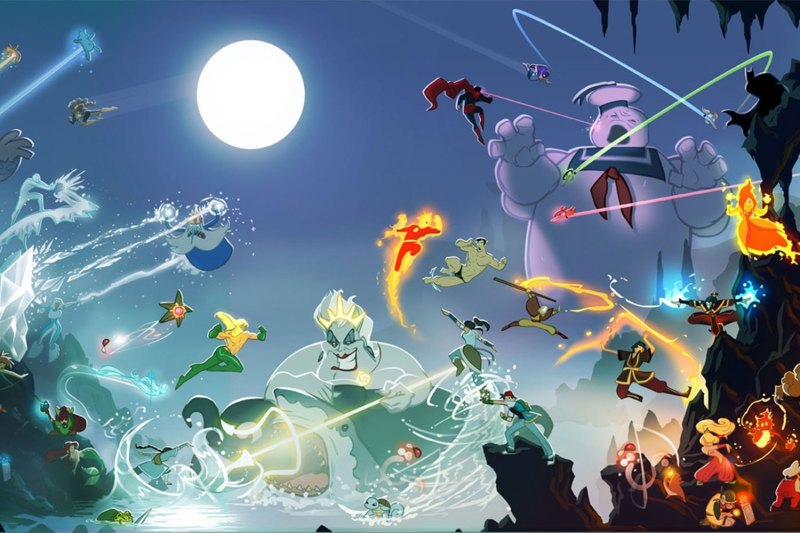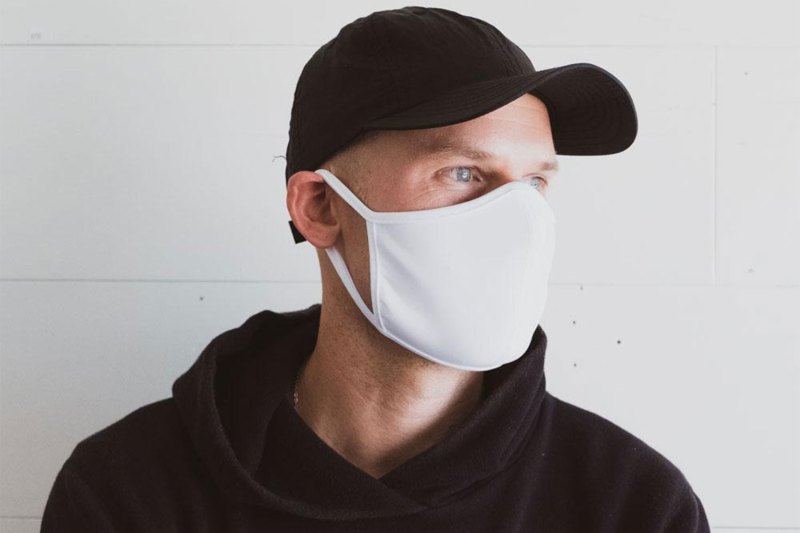There are always silver linings in life, but sometimes they just require a little more patience and digging to identify. Right now, amid an insatiable pandemic and a deservedly fiery racial justice movement, it can be hard to locate the positives. We won’t even get into what will likely be one of the ugliest presidential elections ever. But all is far from lost.
We’ve heard it so much we’re tired of it but the sentiment is true: The world will never be the same again. Coronavirus has changed everything from the way we dress and interact with others to the way we travel and eat. But is the pandemic doing away with some things that probably needed to go in the first place? Is it changing at least certain aspects of industries for the better? We think so.
Food & Drink
Americans are drinking more than ever, albeit in a changed format. The conventional bar has been reduced to a potential cesspool where the virus is passed around like confetti. We drink at home now, or in public, spaced out in parks.
Certainly the adjusted legislation that allows most states to bypass the three-tier system is a silver lining. Drinkers are getting their wine and beer delivered to their doorstep. Cocktail lovers are getting to-go Negronis and enjoying them over an episode of Schitt’s Creek. For smaller operations especially, there’s a new sense of power and liberation. Distributors and retailers still play a huge role but the heightened direct-to-consumer approach is a boon for drinks enthusiasts and smaller labels alike.
Restaurants have been hit particularly hard by the pandemic. While some kind of bailout is necessary to keep many afloat, there’s also an argument at play that suggests the American culinary landscape was oversaturated. Moreover, like so many industries, it needed to look itself in the mirror in the name of equity. Where exactly it lands will be very interesting to track.

In wine, a few benefits started to appear within the chaos. Virtual tastings brought winemakers and their estates from faraway places to consumers’ homes. With tasting rooms closed or working only with small groups, wineries could focus more on cellar work. Some argue the wines will be better as a result.
“When this whole thing started, we had to push back our bottling dates and the wines ended up spending more time in barrel,” says John Grochau, winemaker at Grochau Cellars in Oregon. “That extra time in barrel is certainly something we’d wanted to try, but the pandemic forced our hand. In many cases, the extra time changed the wines in a qualitative way that excited us, and as a result, we’re adjusting our thinking around the bottling of future vintages.”
Winemaker Rachel Rose of Bryn Mawr Vineyards says the pandemic helped her label kick its sustainability goals into gear. “With the huge disruptions in the supply chain, many of the supplies we’d been relying on just weren’t available anymore,” she says. “It was a big wake-up call — when you can’t proceed as normal, it makes you step back and question things.”
Rose says that led to moving all glass needs to a domestic producer in neighboring Washington, as well as stepping away from traditional tin capsules and screw cap bottle closures. “Now we’ve shifted entirely to natural wax closures, which are far more sustainable,” she says.
Environment
There’s a real balancing act between the pros and cons the pandemic is delivering to our beloved natural areas. Certain animal populations have enjoyed fewer cars and human traffic and some cities showed improved air quality numbers, especially early on during the height of the lockdown. But global warming is also raging on and a new wildfire season is upon us, harder to control thanks to pandemic protocol and limited resources. Now, with more people exploring the outdoors as one of the relatively few approved means of travel, there’s a greater threat of human-caused fires.

Some National Parks are seeing record turnouts. The ailing Park Service is struggling to keep up and Americans are taking notice. The Great American Outdoors Act may just revive our Park system, rehabilitating trails, structures, restrooms, and the like. The cash is long overdue and will help rehabilitate some of our greatest treasures. It can pretty easily be argued that our collective appreciation of the outdoors has only risen since March, not just for its natural beauty but for the healthy escape it provides. Environmental organizations are seeing a jump in donations (but don’t stop now, people) and the fact that we’re dealing with a current catastrophe might just set us up a little better for dealing with the next one in climate change (although it’s been here for some time now).
Arts & Culture
The large-scale music festival may never recover fully. So be it. We want experiential adventures these days, not gatherings in which you’re prodded around like a herd of nameless cattle. The future will almost certainly cater to the smaller, more intimate music festival where social distancing comes easily and getting a reasonable distance from the stage isn’t a challenge. Here’s hoping intimate affairs like Pickathon in Portland and LEVITATION in Austin come back better than ever.
The arts in general are thriving in a raw, organic kind of way. Grief and suffering have always inspired creativity and that’s on clear display at the moment. The dazzling street art in response to a systemically racist American police system has turned shuttered businesses and boarded-up buildings into vibrant murals and paintings. Offensive statues are being toppled. More and more people are trying their hand at self-made art at home, whether it’s photography, ceramics, oil painting, or woodworking.

Michael DiMotta is an illustrator based in Portland. His eye-catching art captures pop culture phenomena like RuPaul’s Drag Race and makes its way into commissioned prints, children’s books, celebrity Instagram feeds, and more. Granted, he’s lost some major accounts and, like many of us, wonders what the future holds. But there’s a twinkle at the end of the tunnel.
“On a more positive note, in the absence of work and a changing world, I’ve had to evolve, too,” he says. “I was able to start Patreon accounts and pages for people to support my art and create things for a very specific audience of supporters who contribute to me monthly.” It’s a growing new avenue DiMotta is excited about. “In a changing world, I have to keep changing, too,” he says.
Social
Farewell, handshake. You simply can’t be trusted these days. This is not to say the forearm bump has lasting power but we will almost certainly greet each other differently in the years ahead. We have a unique opportunity to birth a new kind of greeting, one that won’t involve gross hand-to-hand contact.
We’re tired of Zoom and long for physical connection, that’s for sure. But the pandemic has proven what many of us already knew — that working from home is just as viable as showing up at the office. We can interact in productive ways without being in the same room and that can save everything from time and money lost to fossil fuel and energy use. Oh, and there’s dating, which has been decidedly bizarre but not without its benefits. One key one is really getting to know and vet your potential partners. Casual hookups have their attractions, but the new normal has us nailing down some platonic stuff first, which can produce a more fulfilling relationship in the end.

Masks remain a little strange but we’re getting good as it. They’ve become more stylish and they make us all look like ninjas or superheroes. Better still, most of us have warmed up to them for the best reason possible — selflessness. Masks are all about protecting others and while some have politicized genuine facts and science (for shame), it feels like most people want to do the right thing for the greater good. That kind of social mentality bodes well as it’s shining through easily one of the darkest stretches of modern history.
Economy
The big box stores were struggling before the pandemic and COVID offered the fatal blow to many of them. Is this a bad thing? Online retail is surging and, in doing so, we’d like to think it’s being more carefully scrutinized. This is the time for the Amazons of the world to be transparent and model workplace environments and offer pay scales that are humane.
Without question, the economy will struggle for years. Some experts think this recession will outdo the last, which never fully ended before COVID swooped in. Now, we’re in the middle of one of the worst financial stretches in American history. Where’s the good in that? Well, it can’t get much worse, economically. We’re spending less, which is good on personal finances as well as a strong lesson in how to be more frugal going forward.
A major bright spot is the potential for a New Deal-like economic boom in the coming years as the pandemic subsides. We’ll be looking to reimagine major infrastructure tenets like mass transit and office and factory environments and that will lead to more jobs. Certain fields like education and medical services will always be around but we’ll be looking for new ways to carry them into the future. That will require some creative muscle from the latest generation of grads who’ve lived through all this weirdness and will be extra eager to change things for the better.


